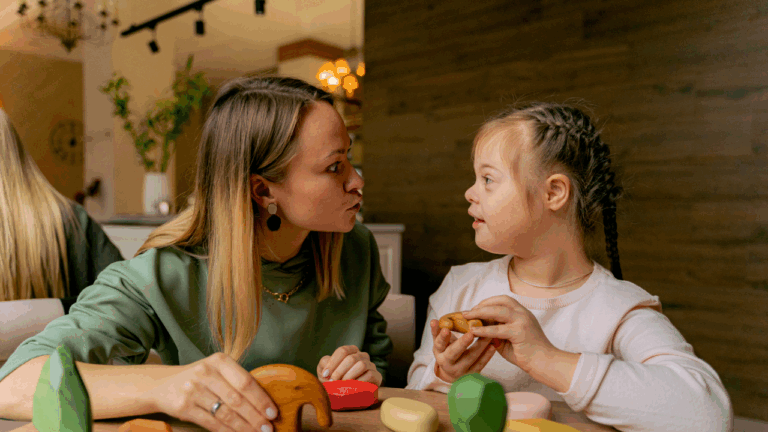
The Tapestry of Minds and Cultures
Australia’s intricate cultural fabric, woven from the ancient lineage of Aboriginal and Torres Strait Islander peoples and enriched by over 270 ancestries from around the world, presents unique challenges and opportunities for mental health services. Recognising the original custodians of the land and the subsequent multicultural influx is essential in addressing the nation’s complex identity. With a significant portion of the population Indigenous or born overseas, the demand for culturally appropriate mental health services is clear. While the Racial Discrimination Act and international declarations offer a framework for equality, the need for mental health support that is attuned to cultural sensitivities remains paramount, ensuring that all Australians have access to care that respects and understands their cultural heritage [1][2][8].
Understanding Cultural Identity: The Foundation of Well-being
Cultural identity in Australia is a source of strength and, at times, stress. The interplay of multiple identities can affect mental health, demanding appropriate understanding and support. Migrants significantly contribute to Australia’s economy, yet often face hurdles such as recognition of qualifications and securing employment [1]. Aboriginal and Torres Strait Islander peoples, while having seen improvements in education and health outcomes, still confront challenges in employment, health disparities, and the enduring impact of historical injustices [2]. These factors underscore the crucial role of cultural identity in mental well-being and the necessity for inclusive mental health services that honour the diverse narratives within Australia.
Coping with Identity Stress: CALD Specific Mental Health Services
In a multicultural society, coping with identity stress necessitates access to mental health services that are both understanding and respectful of cultural diversity. Culturally and Linguistically Diverse (CALD) services are specialised mental health services tailored to meet the unique needs of people from various cultural and linguistic backgrounds. These services offer a culturally sensitive approach, recognising the specific challenges and stressors individuals face navigating different cultural identities.
Organisations like Life Without Barriers provide tailored support, ensuring mental health care is sensitive to cultural differences [3]. The Australian Government also outlines the importance of CALD mental health services in reducing disparities in mental health outcomes and improving accessibility to culturally appropriate care [10].
Fostering Community: A Network of Support
In fostering a supportive community network, the role of services that cater specifically CALD populations is paramount. The Transcultural Mental Health Centre (TMHC) in New South Wales exemplifies this by working closely with health professionals and communities to support positive mental health in CALD communities. TMHC provides resources and information in various languages, ensuring accessibility and cultural relevance [9].
In addition, ProActive Psychology’s initiatives You in Mind and Star4Kids highlight the importance of understanding and respecting cultural perspectives in psychological practices. They demonstrate the effectiveness of culturally informed mental health support by offering personalised care that considers cultural backgrounds and individual needs.
Celebrating Diversity: The Harmony of Differences
Harmony Day, now Harmony Week, embodies the nation’s commitment to celebrating diversity. Introduced alongside the United Nations International Day for the Elimination of Racial Discrimination, Harmony Week has become a symbol of Australia’s social fabric, with the colour orange representing social communication and meaningful conversations that foster mutual respect. The week sees a plethora of activities, from multicultural morning teas in schools to events across various community groups and businesses, promoting an inclusive society where first-generation migrants and long-term residents alike receive recognition of their traditions and cultures [5].
The success of Harmony Week is evident in its widespread adoption, with more than 80,000 events held across Australia since 1999. These events are not just a celebration of cultural diversity; they are a crucial component of Australia’s collective well-being. They encourage the acknowledgement and appreciation of the unique contributions of all communities, fostering a sense of belonging and unity. By participating in Harmony Week, Australians of all backgrounds engage in dialogue and activities that highlight the positive impact of diversity on the nation’s social, cultural, and economic life.
Promoting Inclusivity: The Pillar of Mental Prosperity
Inclusivity across various societal sectors – workplaces, communities, educational systems, and homes – is crucial for a prosperous and mentally healthy society. Fostering diversity and inclusion in workplaces involves specialised training and strategies focusing on unconscious bias, inclusive leadership, and cultural change. This approach enhances workforce performance and nurtures an
environment of mutual respect and understanding [6].
Community services play a vital role in creating inclusive spaces where everyone feels valued and integrated regardless of background. This commitment extends to people from various cultural, linguistic, and indigenous backgrounds and those with disabilities [8].
Adopting inclusive practices such as supporting under-represented groups, respecting cultural and religious responsibilities, and equitable recruitment processes are essential in workplace, education and home environments. These practices enhance teamwork and productivity and encourage different ways of thinking and decision-making [7][8].
Inclusivity in all facets of society is essential for mental well-being and social cohesion, helping to build communities where diversity is accepted and celebrated as a dynamic and integral societal fabric.
Conclusion
Australia’s narrative reflects its richly diverse population, where the legacy of its Indigenous people melds with the heritage of its newer inhabitants. Committing to inclusivity and celebrating diversity are not just moral imperatives; they are the very fabric that strengthens and enriches the nation. Australia continues to evolve as a community that values each individual’s contribution through understanding, respect, and embracing the varied cultural landscapes. This collective attitude underpins the mental and societal health of the nation, steering us towards a future where every person is not only recognised but integral to our shared success.
References
- Australian Human Rights Commission – Face the Facts: Cultural Diversity https://humanrights.gov.au/our-work/education/face-facts-cultural-diversity
- Australian Human Rights Commission – Face the Facts: Aboriginal and Torres Strait Islander Peoples https://humanrights.gov.au/our-work/education/face-facts-aboriginal-and-torres-strait-islander-peoples
- Life Without Barriers – Culturally Diverse Psychological Services https://www.lwb.org.au/services/mental-health/culturally-diverse-psychological-service/
- ProActive Psychology – Culturally Appropriate Psychological Services https://www.proactivepsychology.com.au/you-in-mind/ https://www.proactivepsychology.com.au/star4kids/
- Harmony Day – Wikipedia https://en.wikipedia.org/wiki/Harmony_Day
- Diversity Australia – Specialists in Diversity and Inclusion in the Workplace https://www.diversityaustralia.com.au/
- Australian HR Institute – Tips to Improve Diversity & Inclusion in Your Workplace https://www.ahri.com.au/resources/ahri-diversity-inclusion-maturity-model/35-tips-to-help-improve-diversity-inclusion-in-your-workplace
- Blue Sky Community Services – Social Inclusion Project https://bluesky.org.au/communities/social-inclusion-project-where-everyone-belongs/
- Transcultural Mental Health Centre – Ministry of Health NSW https://www.dhi.health.nsw.gov.au/transcultural-mental-health-centre
- Australian Mental Health Commission – Framework for Mental Health in Multicultural Australia https://www.mentalhealthcommission.gov.au/getmedia/59a020c5-ac1e-43d5-b46e-027c44b94654/Framework-for-Mental-Health-in-Multicultural-Australia


